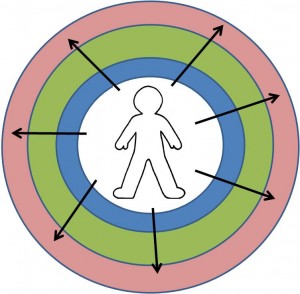Simon Black –
Conflict in conservation is a commonly encountered issue. If we want to see meaningful conservation changes occurring, we need to start seeing any resistance that we encounter in a different light. Rather than considering resistance an unhelpful roadblock to change, we should perhaps see it as both an opportunity and an indicator of progress. The opportunity is that resistance opens a door to new dialogue with others. As an indicator, resistance shows us that people are noticing what we are doing.
As Herrero (2006) points out, the assertion that “People are resistant to change” is untrue. The reality is that people are resistant to change if nothing in terms of what people expect from them actually changes. Extending that notion, Seddon (2005) suggests that the reason people are resistant to change is that they often don’t see its relevance to their lives, because the rest of the system – how they are managed, doesn’t change. With the right encouragement these people can identify and discuss the other areas where change might be required – and themselves, with the right support, start to influence that wider change.
Hererro suggests that we need to REJECT the position that “skeptical people and enemies of change need to be sidelined.” Instead when we manage change, Herrero suggests that greater care is required;
- don’t assume that people have excluded themselves.
- expect resistant behaviours to disappear when alternatives are reinforced.
- give sceptics a bit of slack (they may well have something to contribute).
- suspend judgement, be willing to be surprised, don’t write people off too quickly.

We should also recognise that discord provides opportunity for debate and the development of new ideas. We always need to examine what these ‘outsiders’ are saying and learn from them what the issues or problems really are.
This means that anyone involved in change, at whatever level, needs to take on responsibility for getting on with the change, to be seen to do the things we want to see done. We need to be open minded and able to discuss and debate effectively, not quash dissent, but seek opportunities for engaging new ideas.
Rather than challenging the nay-sayers with a dogma that ‘resistance is useless’ perhaps we should have a new perspective that will engage their input: resistance is useful!
Read more…
Herrero, L. (2006) Viral Change, meetingminds, UK.
Seddon, J. (2005) Freedom from Command and Control, Vanguard Press, Buckingham, UK.